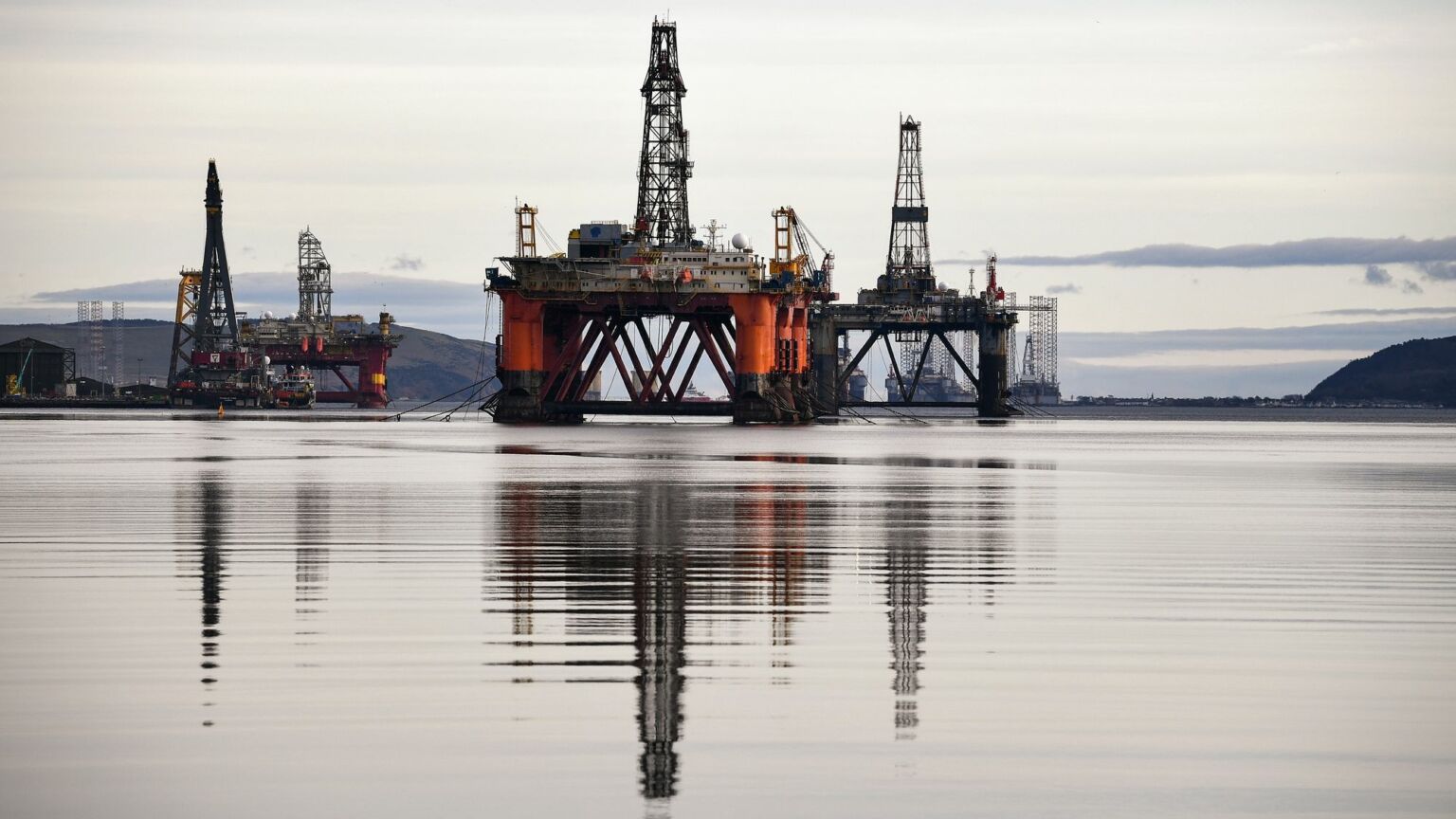The madness of Labour’s oil and gas ban
This war on domestic fuel production would be catastrophic for ordinary Britons.

It could almost be over for the UK’s North Sea fossil-fuelled energy miracle. Despite it contributing over £350 billion to the exchequer since 1967, with a further £10 billion forecast for 2023-24, it seems a future Labour government wants to call time on the oil and gas industry. Keir Starmer confirmed last week that Labour would ban all new drilling licences in the North Sea.
At a time when there is huge demand for reliable, secure sources of energy, and at a time when fossil-fuel industries are growing elsewhere in the world, Labour wants to severely hobble the UK’s oil and gas sector. This would be a colossal mistake.
Labour would allow residual North Sea operations (over 270 fields) to linger on. But how much longer they’ll be able to is anyone’s guess. They are already threatened by the Tory government’s windfall taxes, which are locked in until 2028 and could rise even further should Labour win the next election. Meanwhile, expensive regulations like the ‘climate compatibility checkpoint’ will continue to cripple the oil sector, regardless of which party is in power. All this is prompting investors to turn away from the UK’s fossil-fuel industries in their droves. And this, in turn, will threaten our energy supplies.
Indeed, Labour’s policy announcement alone could jeopardise the planned £24 billion development of the Rosebank oil field, which the Tories are expected to approve. A ban on new activity will also lead to current infrastructure falling into disrepair. After all, no one will want to invest in pipes and rigs if they expect to have no new customers.
Labour’s attack on the fossil-fuel industry seems self-defeating at best. The UK remains between 75 and 80 per cent dependent on fossil fuels for our primary energy use. While we are becoming slowly less reliant on fossil fuels, we are still likely to need them for at least a further 20 to 30 years. We could potentially use them for even longer while minimising the impact on the climate, if mitigation technologies like carbon capture, utilisation and storage (CCUS) are rolled out at scale. Indeed, the government has recently announced £20 billion in funding for carbon-capture development.
If Labour runs down our own fossil-fuel production, in order to meet demand, we will simply end up importing more oil and gas from outside the UK. This is why Labour’s plan is not only economically reckless – it could also be bad for the environment, too. The emissions profile, for example, of tanker-imported liquefied natural gas (LNG) is more than double that of gas drilled here.
Then consider the tax revenue lost from running down the oil and gas industry. This revenue could be invested in research and development (R&D) to reduce the cost of low-carbon technologies. But without it, the costs of R&D, not to mention the costs of importing energy from abroad, will be passed on to taxpayers. This will lead the cost of living to rise even higher, which would be catastrophic. Indeed, The Economist recently queried whether ‘expensive energy may have killed more Europeans than Covid-19 last winter’.
Labour’s policy announcement will no doubt have delighted Just Stop Oil and other climate catastrophists. But some of Labour’s trade-union sponsors are less happy. The GMB, which represents North Sea oil workers, is furious and is opposing the policy. It is extraordinary that a party that used to claim to represent workers is now blocking oil rigs and coal mines, and is celebrating the destruction of highly paid unionised jobs in the UK’s industrial heartlands.
Labour argues its energy policy is supported by the International Energy Agency (IEA) and its 2021 ‘roadmap’ to Net Zero. The IEA (not to be confused with the Institute of Economic Affairs, where I work) has certainly provided a veneer of justification for ‘leave it in the ground’ policies of the type being pursued by Labour. But this is largely because the IEA reflects back to politicians their own Net Zero thinking. Its ‘roadmap’ is, above all, a product of green ideology.
What about renewable energy? Replacing fossil fuels with renewable sources is far more difficult than Labour is willing to admit. The UK’s renewables sector is hardly a success story. The government is still paying £4 billion in subsidies every year to support the wind industry, some two decades after it first started throwing money at it. And we don’t currently have serious domestic solar, hydrogen or battery industries. There are plenty of jobs in green NGOs, think-tanks and pressure groups selling the ‘growth opportunities’ of Net Zero to gullible politicians. But very few jobs have actually been created in Britain’s green sector, despite all the state support it has received.
Labour is effectively pledging to destroy real jobs and a real industry, while virtue-signalling about future tech that will take decades to mature. The ultimate beneficiaries of this self-destructive energy policy will be the US fracking industry, the Arab petrostates and perhaps even Russia – whom we will have to rely on to import our energy supplies.
Labour’s ban on North Sea oil and gas will hit British citizens hard. Starmer thinks he’s embarking on a sensible, orderly transition to Net Zero. Instead, he could be exposing us to many more years of energy crisis.
Andy Mayer is chief operating officer, company secretary and energy analyst at the IEA.
Picture by: Getty.
To enquire about republishing spiked’s content, a right to reply or to request a correction, please contact the managing editor, Viv Regan.









Comments
Want to join the conversation?
Only spiked supporters and patrons, who donate regularly to us, can comment on our articles.